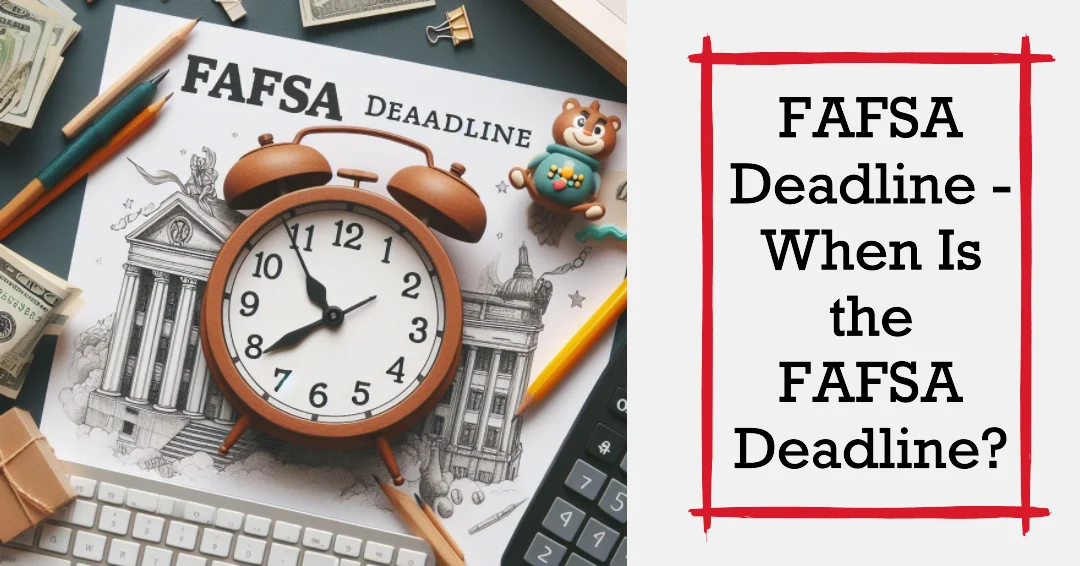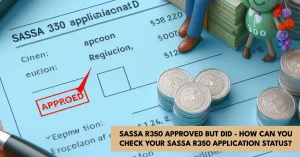For Advertising Contact Us
FAFSA Deadline – When Is the FAFSA Deadline?

FAFSA, the Free Application for Federal Student Aid, is a crucial step for students seeking financial assistance for college. Missing the FAFSA deadline can mean missing out on valuable grants, scholarships, and loans that can help make higher education more affordable. It is important for students to be aware of the FAFSA deadline, as it varies depending on the state and institution. In this blog post, we will discuss important dates and deadlines to ensure you don’t miss out on financial aid opportunities. Stay informed and stay ahead in your college planning journey.
Understanding the FAFSA Deadline
Federal FAFSA Deadline
An important deadline to keep in mind when applying for financial aid through the Free Application for Federal Student Aid (FAFSA) is the federal deadline. The federal deadline for the FAFSA is June 30th of the academic year for which you are applying. It is crucial to submit your FAFSA before this date to ensure you are considered for all available federal financial aid programs.
State-Specific Deadlines
FAFSA also has state-specific deadlines that vary depending on where you live and the state you are attending college in. These deadlines can be earlier than the federal deadline, so it’s important to check the specific deadline for your state to maximize your financial aid opportunities. Some states have limited funds available, so submitting your FAFSA early can improve your chances of receiving aid.
For example, California residents should submit their FAFSA by March 2nd to be considered for the Cal Grant program, while Texas residents have a priority deadline of January 15th for state financial aid programs.
College and University Deadlines
With college and university deadlines, it is crucial to be aware of each institution’s specific deadline for submitting the FAFSA. These deadlines can vary widely and may be earlier than both federal and state deadlines. Missing a college or university deadline could result in losing out on institutional financial aid opportunities, so it’s important to check with each school you are applying to for their individual deadline.
Deadline examples include some schools requiring the FAFSA to be submitted by February 15th for priority financial aid consideration.
Preparing to Submit the FAFSA
Gathering Necessary Documents
With the FAFSA deadline approaching, it is crucial to gather all necessary documents beforehand. This includes your Social Security number, driver’s license, W-2 forms, tax returns, bank statements, and any records of untaxed income. Having these documents ready will streamline the FAFSA completion process.
Creating an FSA ID
On top of gathering documents, creating an FSA ID is necessary for FAFSA submission. An FSA ID is a username and password that allows you to access and sign your FAFSA electronically. Make sure to create your FSA ID well in advance of the deadline to avoid any last-minute technical issues.
Preparing to submit the FAFSA requires meticulous planning and organization. By gathering all necessary documents and creating your FSA ID ahead of time, you can ensure a smooth and efficient application process. Recall, meeting the FAFSA deadline is crucial for securing financial aid for your education, so don’t delay in getting everything in order.
What Happens After You Submit the FAFSA?
Reviewing Your Student Aid Report (SAR)
Unlike the rush of filling out the FAFSA form, after submission, you will receive a Student Aid Report (SAR). This document summarizes the information you provided on the FAFSA and indicates your Expected Family Contribution (EFC), which is used to determine your eligibility for federal student aid.
Making Corrections and Updates
Happens If you spot any errors on your SAR or need to make updates to your information, you can do so online or by contacting the Federal Student Aid Information Center. It’s crucial to correct any mistakes promptly to ensure the accuracy of your financial aid package.
Student aid eligibility can be affected by changes in your family’s financial circumstances or other relevant details. Whether you need to update income information, dependency status, or school choices, keeping your FAFSA up-to-date is necessary to receive the maximum financial aid you qualify for.
Tips for Meeting the FAFSA Deadline
Not meeting the FAFSA deadline can result in missing out on valuable financial aid opportunities. To avoid this, here are some tips to help you meet the deadline:
- Start the FAFSA application process early
- Gather all necessary documents beforehand
- Double-check all information for accuracy
- Submit the FAFSA before the deadline to ensure timely processing
Recognizing the importance of meeting the FAFSA deadline is crucial for securing financial aid for college.
Early Preparation Strategies
FAFSA early preparation strategies involve gathering all necessary documents such as tax returns, W-2 forms, and bank statements ahead of time. By organizing these documents early on, you can streamline the application process and avoid last-minute scrambling.
Avoiding Common Mistakes
For avoiding common mistakes when filling out the FAFSA, remember to enter accurate financial information, double-check all entries for errors, and submit the form before the deadline. Errors in the application could lead to delays in processing and potential loss of financial aid opportunities.
With careful attention to detail and proper planning, you can successfully meet the FAFSA deadline and ensure that your financial aid needs are met for college.
Consequences of Missing the FAFSA Deadline
Impact on Financial Aid Eligibility
Now, missing the FAFSA deadline can have significant consequences on your financial aid eligibility. Federal student aid programs have limited funds, and many are distributed on a first-come, first-served basis. By not submitting your FAFSA on time, you may miss out on certain types of aid, such as the Federal Pell Grant or Federal Work-Study program.
Potential for Late Submission
To any student who misses the initial FAFSA deadline, there is still a chance to submit the application late. While some states and colleges have specific deadlines for state and institutional aid programs, the federal deadline is typically June 30th of the academic year. Late submission may still qualify you for aid, but the amount of aid available may be reduced due to limited funding.
Financial aid offices recommend submitting the FAFSA as soon as possible to ensure you are considered for the maximum amount of aid available. Even if you miss the deadline, it’s better to submit a late application than not at all.
To wrap up
Ultimately, understanding the FAFSA deadline is crucial for students looking to secure financial aid for their college education. By knowing when the deadline is, students can ensure they submit their applications on time and maximize their chances of receiving the help they need. It is important to stay informed and plan ahead to avoid missing out on potential financial aid opportunities. Don’t let the deadline pass you by – mark your calendars and submit your FAFSA application on time to secure the support you need for your college journey.



